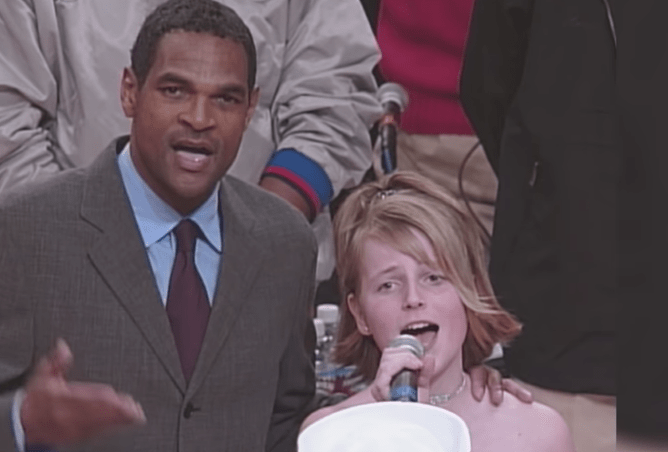Compassion, Empathy, Sympathy - confused?!
I recently had the honour of facilitating some Train the Trainers training - it's truly inspiring to have your own work presented back to you, and to acknowledge we're always learning! Conversations, sharing and vulnerability abound.
One topic was Compassion, and it became apparent to me that there is quite of bit of 'grey' here.
What is compassion (compared to empathy and sympathy for example)?
And how do you 'do' compassion?
With it officially being 6 months to Christmas today (sorry to those who find news like this anything but joyous!), I thought it was perfect timing to give the gift of knowledge and awareness to you today.
LET'S UNPACK THE MISUNDERSTANDINGS
Let's start with EMPATHY. Empathy is being able to imagine what someone else might be thinking or feeling. Literally putting ourselves in the shoes of others, and sensing their emotions and experiences.
COMPASSION, which when broken down into its Latin derivatives, means to 'suffer together'. This means it goes beyond empathy because not only do we put ourselves in the shoes of others, when we are being compassionate we are also wanting to know how we can help, to sense how we can truly serve others. We have an intention, wisdom and capacity to relieve and transform someone's hardship or suffering.
Compassion is defined so eloquently by Thupten Jinpa, a leading researcher at Stanford's Centre for Compassion and Altruism Research and Education:
“Having compassion for others frees us from fearing… it turns our attention outward, expanding our perspective, making our own problems… part of something bigger than us, that we are all in together.”
Both empathy and compassion fuel connection. And ultimately compassion fuels benevolence.
SYMPATHY on the other hand: is not about sensing what someone else might be feeling, nor is it sensing how we may serve them. It creates disconnection: literally to convey feelings of regret or sorrow about someone's hardship.
Not many of us want sympathy but we do want to be heard and have our feelings validated! To sense we are 'in this together'.
ALLOW ME TO SHARE THREE TOOLS TO CREATE A PRACTICE OF COMPASSION
Generous Listening
It Must Be Hard to be...
Just Like Me!
TOOL #1 - GENEROUS LISTENING
Pay attention - how often are we listening with the intention of answering? Are we really listening to how someone is relating to their situation or quickly shifting into problem-solving mode as we make assumptions about the story being shared? To practice compassion, listen with the intention of understanding what is going on for someone, and rather than dish out advice or judgment, or criticism, validate how someone is feeling.
Remember, how they are feeling makes perfect sense for them given what they're going through. It doesn't have to make sense to you, and it certainly doesn't have to be logical or rational. When someone is upset, its actually unlikely to be logical, because they're operating from another part of their brain anyway.
So I challenge you, to listen generously, and to give the best gift of all - your attention!
TOOL #2 - IT MUST BE HARD TO BE...
Often it's hard to extend compassion to someone who is upsetting us. It’s sometimes easier to be nicer to complete strangers, than those you live with or work with! If you find yourself in a position of self-doubt, frustration or hurt because of someone’s response to you, try extending some empathy and compassion, anyway!
Here is a method I like to use: I put myself in their shoes as best I can and I ask myself:
“It must be hard to be …. because….”
Even practicing this with someone you're having a few difficulties with can have a remarkable effect on your ability to respond in a calm and compassionate manner.
Just use this as an example: it must be hard to be the (parent) soccer coach of a team of year 1 and 2 kids because:
“not all the kids can play so well and it’s the final”
“all the parents will think they know better”
“they give up so much of their time for training and games”
"there is a fine line between wanting to win and wanting to ensure everyone gets played”
“sometimes players are late to the games”
“the kids don’t always do what they have been taught - and they're making daisy chains and cartwheels on the pitch!”
Think of a situation in which you are feeling frustrated, hurt, angry, taken advantage of. Ask yourself: It must be hard to be (this other person) because….”
TOOL #3 - JUST LIKE ME ...
Another favourite tool of mine: it's certainly changed my life as far as 'judging' carparkers and people at the supermarket goes!
I’ve already admitted it - sometimes it’s easier to be nicer to complete strangers than the people we're in contact with every day. But it can also be difficult showing compassion to people you don’t understand, people who aren’t like you.
Remind yourself, as you move through your day, that we are all connected by virtue of the fact that none of us is perfect (yes, we all make mistakes!), all of us have 'stuff' going on in our lives (yes, we can be distracted and stressed sometimes), and we all want the same things in life.
It's this third piece I'd like to emphasise : others have feelings, emotions and thoughts - just like me. Others have experienced physical and emotional pain, suffering, just like me. Others have felt unworthy or inadequate, just like me. Others wish to be free from pain and suffering, just like me. Others want to be safe and healthy, peaceful and happy just like me. Others just want to get in and out of the supermarket and home to their families, just like me!!!
When it comes down to it: everyone is just like me.
So my challenge to you is to look for similarities between yourself and those with whom you have a little niggle - even a bit of 'beef'. Underneath all our defenses, excuses and mistakes, others are just like you!
The great news is that the more you practicing 'doing' compassion, the more compassionate you become. It starts becoming a natural way for you to show up.
You've heard it before but it makes even MORE sense when talking about compassion: my philosophical stance about life is this: we are all fundamentally connected:
No-one is immune to adversity, there is no ‘golden ticket’ promising a smooth ride.
None of us is perfect, we all make mistakes!
We all want the same things in life – love, warmth, belonging, meaning, achievement…
And with half-year-mark-Christmas-spirit in mind, I invite you to watch a 2 min clip ()
- this smacks of compassion and brought tears to my eyes. And it is demonstrating that sometimes when we are showing compassion we are often having to summon up courage to 'put ourselves out there too'.


